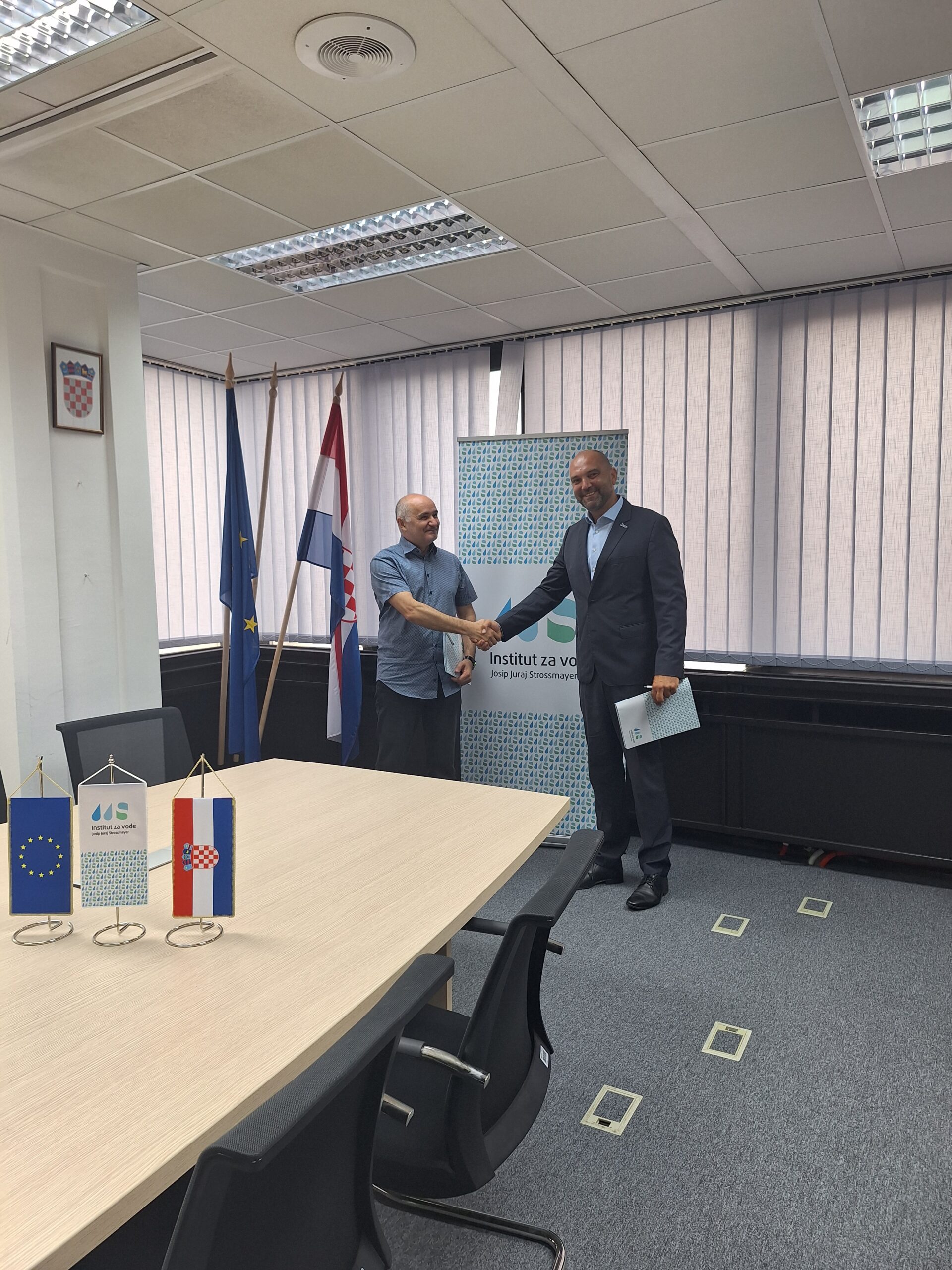Signed Agreement on cooperation with the Faculty of Chemical Engineering and Technology


Today, a cooperation agreement was signed between the Faculty of Chemical Engineering and Technology and the Josip Juraj Strossmayer Water Institute, which represents an important step in future cooperation with higher education institutions.
This agreement promotes the development and establishment of educational programmes and expands opportunities for scientific and professional activities, especially within the academic community.
“The Faculty of Chemical Engineering and Technology is a higher education institution operating in the fields of engineering, natural and interdisciplinary sciences. Here, scientific research, development and professional projects are carried out and bachelor’s, master’s and postgraduate studies are conducted to educate future experts in the fields of chemical engineering, chemistry and materials engineering, applied chemistry and eco-engineering. I am particularly pleased about the involvement of our students in professional practise at the Institute through this cooperation agreement,” said the Dean of the Faculty, Dr Ante Jukić, Professor.
Josip Juraj Strossmayer Water Institute is a public institution whose main activity is the monitoring of surface and groundwater quality, the development of scientific and professional foundations and the education of state and other officials for the needs of water management. An integral part of the Institute is the Main Water Laboratory, which carries out water analyses. The Institute carries out specialised and scientific work in the fields of natural, technical and biotechnology.
“I believe that cooperation will be of exceptional importance, especially in areas of mutual interest through scientific research and development activities, such as joint planning and implementation of scientific research and development projects, joint applications for scientific research and development projects to international and national funding sources and the organisation and implementation of scientific and professional meetings of mutual interest. Certainly, educational activities will also contribute to the strengthening of cooperation through the practical training of students by conducting professional internships at the Institute and the professional support of students in the preparation of their theses and dissertations by the Institute’s experts, as well as through opportunities for employment and further professional development at the Institute,” said the Director of the Institute, Dr Mario Šiljeg, Associate Professor.